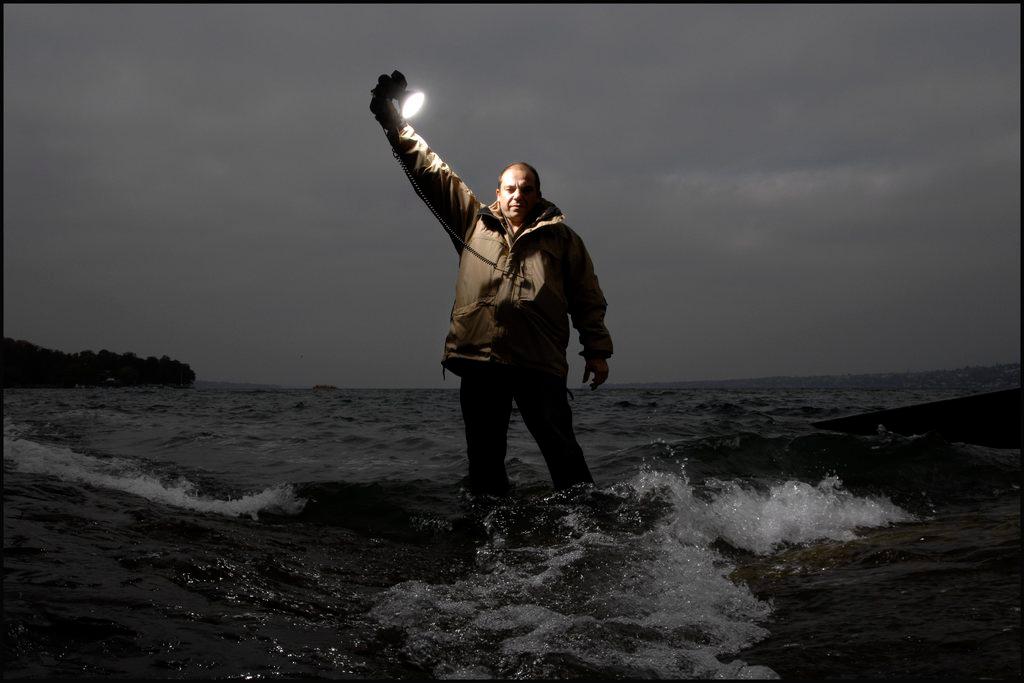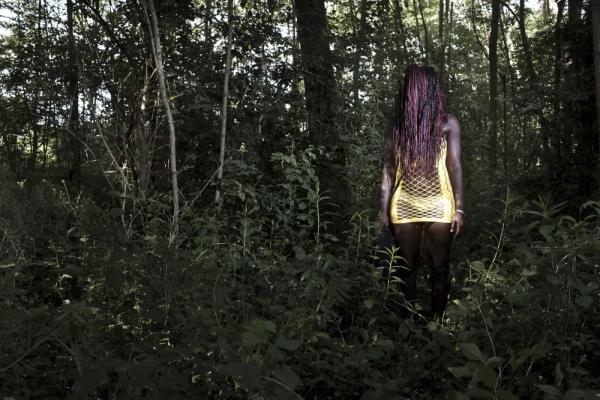
Swiss photo legend Jean Revillard dies suddenly

Award-winning Swiss photographer Jean Revillard died of a heart attack this weekend.
Revillard was 51. Switzerland’s professional journalist association impressum announced his passing on its website late Friday.
The Geneva native had been both a gallery owner and a press photographer, notably at Le Nouveau Quotidien and L’Hebdo.
In 2001 he founded the photo agency Rezo.ch. His work on migrants cabins at Calais, France, won him the prestigious World Press Award as well as the Swiss Press Award.

In 2009, Revillard once again won the World Press Award as well as a prize from the city of Prague.
He also received great acclaim for “Sarah on the bridge,”External link a photo essay focused on an African sex-slave in northern Italy.

“In French-speaking Switzerland, he was the first to combine the aesthetics of advertising and fashion with photo-journalism, a literal spotlight on the miseries of the globe and its ghosts,” wrote Le Temps on Saturday in a tribute to the photographer.
Revillard was working on a personal project in Brittany when he suffered sudden cardiac arrest, according to Le Temps.
“The forest was like a temple to him, a base camp. This is where he found his inspiration,” says Christophe Chammartin, a colleague of nearly twenty years at the Rezo agency.
A friend, Nicolas Righetti, told the newspaper: “Jean was resolutely a man of the press, but he wanted to give another look, an offbeat look. He invented his style, this intense flash of flash… punchy… in his image.”
That signature style won him many awards, notes Le Temps, but “his photographs, with their elaborate aesthetics, particularly those of refugees, have sometimes been criticized for aestheticising the worst.”
In 2015, during yet another controversy on the World Press Photo, Revillard said: “We can modify the light, the contrast without profoundly changing the image. I was accused of using flash in my work on the huts in Calais, of aestheticizing poverty. I agree with ethics, but not with morality. The limit, for me, is the buffer. No one removes or adds anything.”

The documentary photographer often focused on those living on the edge. “[He] deals with the question of refugees in the broadest sense: radiation patients, prostitutes pushed into the forest, tsunami refugees, they often follow men and women pushed to the brink of civilization,” notes his agency.
In his final years, Revillard had trained in drone (UAV) photography and documented the Solar Impulse’s journey around the world.


More
Swiss solar plane ends round-the-world tour

In compliance with the JTI standards
More: SWI swissinfo.ch certified by the Journalism Trust Initiative












![The four-metre-long painting "Sonntag der Bergbauern" [Sunday of the Mountain Farmers, 1923-24/26] had to be removed by a crane from the German Chancellery in Berlin for the exhibition in Bern.](https://www.swissinfo.ch/content/wp-content/uploads/sites/13/2025/12/01_Pressebild_KirchnerxKirchner.jpg?ver=f05a5a9c)














You can find an overview of ongoing debates with our journalists here . Please join us!
If you want to start a conversation about a topic raised in this article or want to report factual errors, email us at english@swissinfo.ch.